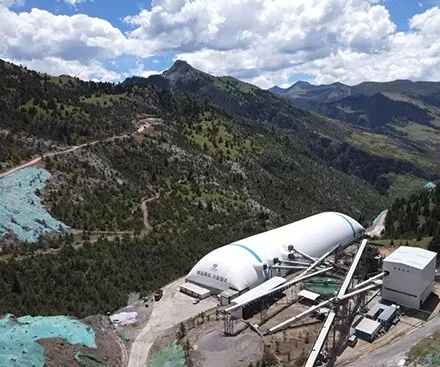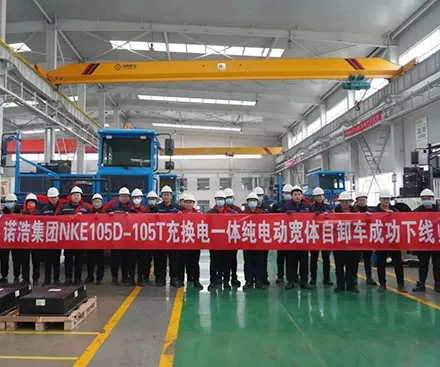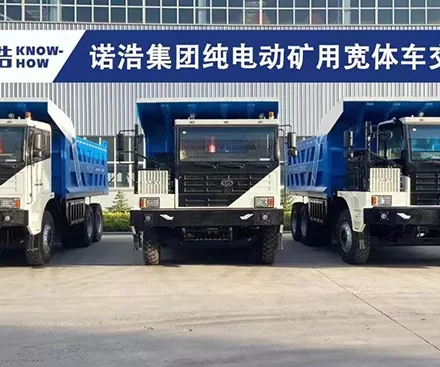Excavators and wheel loaders stand as two indispensable pieces of earthmoving equipment on any construction site. While each has unique applications, both machines come equipped with a range of capabilities that enhance operational efficiency and overall productivity across job sites throughout Australia. Let's delve into these robust earthmovers to help you determine which is best suited for your project requirements.
An excavator is a robust machine with diverse applications, finding utility in construction, mining, and agriculture, among other industries. Equipped with tracks, a dipper, and a boom, each component serves distinct functions based on the specific task at hand, such as digging, trenching, or demolition. These machines leverage hydraulics to power the arm and bucket in tandem, significantly amplifying their impact on earthmoving projects.
Excavators stand out as highly versatile equipment, capable of working seamlessly in a full 360-degree range. This adaptability makes them ideal for tasks involving rocks and soil. The tracked design facilitates easy maneuverability across challenging terrains, ensuring efficient debris relocation from one location to another.
Available in various sizes, ranging from mini excavators to heavy earthmoving models, and encompassing types like dragline excavators, crawlers, and suction excavators, these machines cater to different project requirements. Some, like suction excavators, specialize in underground excavation without causing surface damage.
While excavators excel at digging, wheel loaders serve as the workhorse on construction sites.
Primarily tasked with moving loads such as dirt or loose materials, wheel loaders feature large wheels providing traction on damp surfaces. Renowned for their mobility and load-carrying capacity, wheel loaders are a popular choice. The bucket size of a wheel loader surpasses that of an excavator, making them the preferred option for transporting substantial masses.
Wheel loaders are available in different sizes, ranging from small to large. Their structure, with front and rear axles, enables them to support significant weights. Although wheel loaders can be utilized for digging, it is not their primary function, distinguishing them from excavators.
Wheel loaders and excavators both have different functions. An excavator is designed to dig up dirt while a wheel loader moves materials around easily onsite. The key difference between these two machines lies in their primary purpose.
Firstly, there's the bucket capacity. Wheel Loaders are much more efficient at moving materials than excavators. The bucket of a wheel loader boasts a larger capacity, making it suitable for digging, although its primary function is the effortless transfer of large volumes with minimal hassle.
While excavators excel at breaking ground, their limitation lies in transporting smaller amounts of material. To compensate for this drawback, these two machines often collaborate. The relationship between a wheel loader and excavator resembles a partnership, with one machine handling the excavation, while the other navigates around the created dirt piles, removing excess material from the site.
Wheel loaders are proficient at pushing and pulling loads, but they fall short of the versatility offered by an excavator. The excavator's ability to operate in a 360-degree range provides more possibilities than equipment restricted to straight lines or right angles. This flexibility is particularly valuable when penetrating sites where other equipment might hesitate due to the challenges associated with reaching inaccessible places.
When determining the most suitable equipment for your operations, consider a few key questions to pinpoint the best choice. So, which one should you opt for? The decision ultimately hinges on the nature of the work being undertaken and the specific requirements at the worksite.
Your primary worksite tasks should guide your decision to employ an excavator, a wheel loader, or a combination of both. For instance, if your primary need involves excavating dirt for a swimming pool, the excavator is the optimal choice—especially if the excavation yields relatively small amounts of loose dirt and materials to be removed.
Conversely, if your operations are anticipated to generate significant amounts of dirt and debris, such as when excavating for an underground car park, a wheel loader becomes the preferable option. In reality, for optimal efficiency, most extensive construction projects stand to benefit from the availability of both machines.
The dump height is another factor that may impact your decision. Excavators typically offer a significantly higher dump height, providing greater freedom in material movement. Operators also benefit from enhanced visibility when dumping materials from an excavator, improving accuracy.
In contrast, wheel loaders have a lower dump point, which can pose some operational challenges. However, the dump height is still sufficient for transporting materials into large bins or tipper trucks.
If you are operating within a tight budget and need to choose between the two, it's crucial to factor in the ongoing maintenance costs for each piece of machinery. Both machines are designed for durability to withstand heavy workloads. However, when owning a wheel loader, approximately 50% of your maintenance budget may go toward replacing the wear and tear on the wheels. In contrast, excavators equipped with tracks experience less wear and tear, reducing the frequency of necessary repairs.
Nevertheless, both machines have moving parts. The operation of a wheel loader is more straightforward than that of an excavator, so you may encounter fewer, albeit potentially smaller, repairs when using an excavator.
The nature of your workspace significantly influences the choice of plant equipment you can safely employ. Despite their larger size, excavators can effectively operate in small spaces due to their 360-degree movement capability. This grants greater flexibility in usage, as once positioned, excavators require less frequent relocation.
On the other hand, wheel loaders demand more space to operate efficiently. Their front-only operation restricts them to spaces where the vehicle can approach directly, requiring sufficient room for front-on access and easy turning—a process that typically consumes more space compared to maneuvering an excavator. In summary, when working in smaller spaces, an excavator is the preferred choice.
When it comes to bucket capacity, the dynamics shift as wheel loaders offer a significantly higher capacity. As mentioned earlier, an excavator's primary function is digging, especially for specialized tasks like trenches and drains, where the smaller bucket size is advantageous. However, when it comes to transporting large volumes of materials over longer distances, the larger bucket capacity of a wheel loader makes it the more suitable choice.
It's worth noting that, despite their greater maneuverability, excavators can be slower and more challenging when making multiple trips across a worksite to dispose of loose materials. The broader bucket and enhanced weight capacity of a wheel loader position it as the ideal option for efficiently moving substantial amounts of materials.
Excavators and wheel loaders stand as indispensable tools on any construction site, facilitating the movement of large quantities with ease. Their significance becomes particularly evident when working in remote areas inaccessible to other vehicles due to size and weight restrictions.
Determining which machine to use when both substantial digging power and heavy lifting ability are required lacks a strict answer. Excavators primarily operate on solid surfaces like roads or fields, whereas wheel loaders boast more diverse applications, making them suitable for construction sites with obstacles that cannot be easily moved by an individual.
In budget-constrained scenarios where choosing only one machine is necessary, the excavator emerges as a prudent choice. Its versatility allows for both small and large-scale digging, and it can also transport materials, albeit not as efficiently. Conversely, while wheel loaders can handle digging tasks, their bucket width limits them in dealing with smaller-scale digging like trenches.
In essence, excavators offer a bit more flexibility, but having both an excavator and a wheel loader available would be the ideal scenario for comprehensive site efficiency.

Jul. 23, 2022
View More
Jun. 15, 2022
View More
Jun. 01, 2022
View More